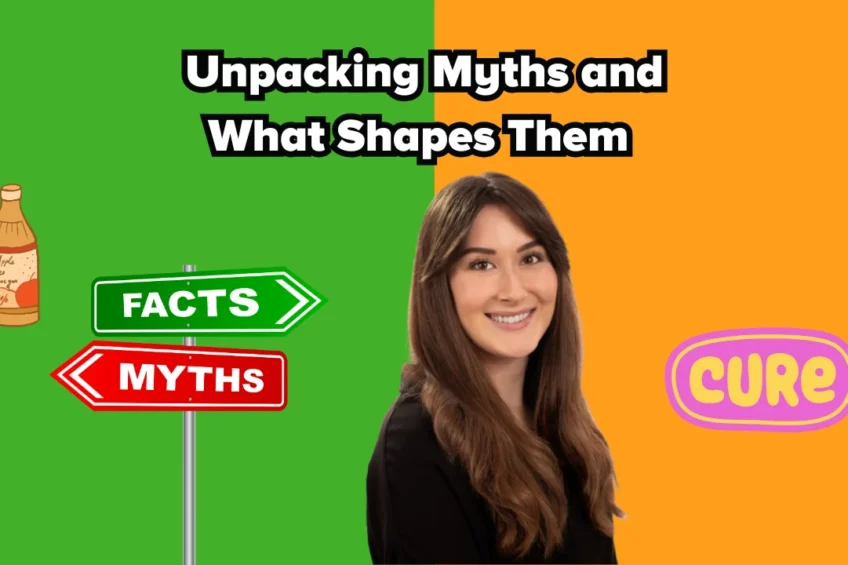Apple Cider Vinegar, Misinformation, and the Power of Influence
It is amazing how something as simple as apple cider vinegar can reveal so much about the way health myths spread and how our choices are shaped by casual conversations, social media trends, and even well-meaning advice from friends or family.
Apple cider vinegar has been hailed as a miracle cure for everything from hiccups to parasites, acid reflux, and blood sugar control. Some claims contain a small kernel of truth, like vinegar slightly affecting post-meal blood sugar when used with food. However, many other claims, such as drinking it straight to “flush out toxins” or cure chronic diseases, stray far from what the evidence supports. These beliefs can linger for years.
One reason myths like these persist is the power of casual influence. We might hear a friend say, “Just drink a shot of apple cider vinegar to fix that,” or see a viral video claiming it is the secret to weight loss. These messages spread quickly, and even if we do not act on them right away, they plant seeds of curiosity or doubt about what we already know. Over time, repetition can make them feel true, especially if we are looking for a quick fix to health challenges.
Another key factor is mistrust. When people feel dismissed by healthcare providers or unsupported in their health journeys, they may turn to alternative remedies. This does not mean there is no place for natural therapies, since there absolutely can be, but it highlights the need for kind, open conversations between individuals and healthcare professionals. When people feel heard, they are less likely to chase misinformation and more likely to make choices grounded in evidence.
It is also important to recognize that even health professionals can find themselves tempted by quick fixes or old family remedies. Many of us have tried things like apple cider vinegar shots just to see if they help. While curiosity is not a bad thing, it is vital to balance it with reliable information and an understanding of potential risks, like enamel erosion or digestive irritation from consuming undiluted vinegar.
So what can we do? We can:
Stay curious, but also critical. Ask where information comes from and whether there is evidence to back it up.
Have honest discussions with your healthcare team about what you are trying or thinking of trying.
Share accurate information with kindness when friends or family pass along questionable advice.
Remember that influence goes both ways; your words can spread either clarity or confusion, so choose them thoughtfully.
Apple cider vinegar can absolutely be part of a delicious salad dressing. However, when it comes to big health promises, it is best to step back, seek good information, and have conversations grounded in trust and compassion. Together, we can reduce the spread of misinformation and empower each other to make informed choices for our well-being


